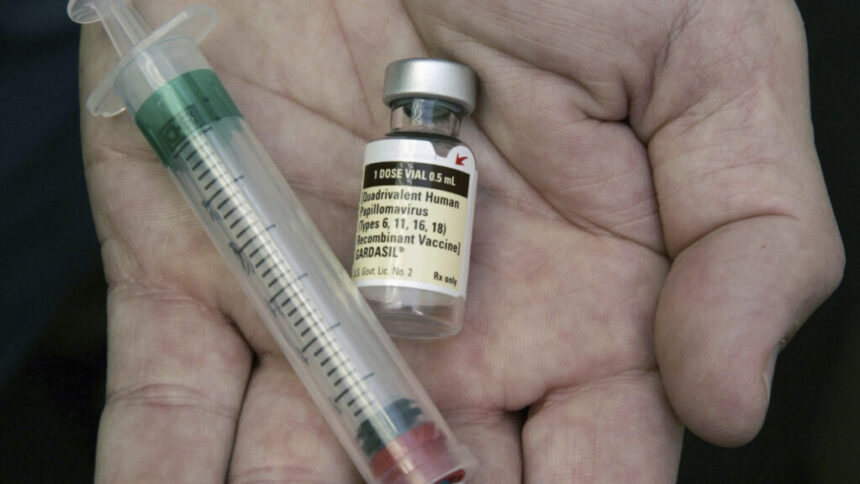This new research showing that a single dose of the HPV vaccine is just as effective as two doses could be a game-changer in these regions. With the efficacy of the vaccine remaining upwards of 97% regardless of whether one or two doses are given, it could make it much easier and cheaper to administer the vaccine to millions of people in developing countries. This, in turn, could potentially save millions of lives by preventing HPV-related cancers.
The results of this trial have been met with praise from experts in the field. Chyke A. Doubeni, from The Ohio State University Wexner Medical Center, called the results “phenomenal” and highlighted how they could help expand access to the vaccine in developing countries. Norman “Ned” Sharpless, a former NCI director, also praised the trial, calling it the most important cancer prevention trial in the world. He emphasized that the clear evidence supporting the efficacy of the HPV vaccine will make its dissemination worldwide much easier and cheaper.
However, the results could face opposition in the U.S. due to political reasons. Robert F. Kennedy Jr., the Secretary of the Department of Health and Human Services, has been a vocal critic of HPV vaccines, particularly Gardasil. Despite numerous studies contradicting his claims, Kennedy has raised concerns about the safety of the vaccine. His stance on HPV vaccines has been controversial, especially considering the significant impact they have had on preventing cervical cancer.
Despite potential political challenges, the scientific community is excited about the implications of this research. The NCI, which spearheaded the development of the HPV vaccines, has been pivotal in studying ways to increase vaccine uptake as a means of cancer prevention. The impact of HPV vaccines in developed countries, such as the U.S., has been significant, with a notable decrease in precancerous cervical lesions. The hope is that these findings will pave the way for wider access to the HPV vaccine, particularly in regions where screening for cervical pre-cancers is limited.
Overall, the results of this trial offer a glimmer of hope for the future of cancer prevention, particularly in regions where access to healthcare resources is limited. By demonstrating the efficacy of a single dose of the HPV vaccine, this research opens up new possibilities for reaching more individuals and potentially saving countless lives from HPV-related cancers.
Researchers are making groundbreaking strides in the fight against cervical cancer by uncovering new information about the effectiveness of HPV vaccines. In a recent talk, it was revealed that only 24% of the girls who should receive the vaccine worldwide actually do. This alarming statistic highlights the urgent need for improved vaccination rates to protect against HPV and ultimately prevent cervical cancer.
One of the key findings that has emerged from the research is the discovery that a single dose of the HPV vaccine may be just as effective as the standard two-dose regimen. This revelation has the potential to revolutionize cervical cancer prevention efforts and increase vaccine accessibility for individuals around the world. The National Cancer Institute (NCI) has played a crucial role in driving this important research forward.
Rolando Herrero, a lead researcher involved in the study, was part of a groundbreaking trial in 2007 known as the Costa Rica Vaccine Trial. This study initially tested three doses of the Cervarix vaccine but found that individuals who received only one dose were just as protected against HPV as those who received the full three doses. This unexpected result challenged conventional beliefs about vaccine dosing protocols and paved the way for further investigation into the efficacy of single-dose regimens.
Subsequent studies, including one conducted in India, provided further evidence supporting the effectiveness of a one-dose HPV vaccine course. The World Health Organization and the U.K. have since recommended a single-dose regimen, acknowledging the potential benefits of this simplified approach to vaccination.
The impact of these findings cannot be understated, particularly in regions where vaccination rates are low. Experts believe that even one dose of the vaccine can provide significant protection against cervical cancer, making it a valuable tool in the fight against this deadly disease.
While the U.S. has yet to adopt a single-dose regimen for HPV vaccination, there is growing support for the idea within the medical community. However, further research is needed to address remaining questions about vaccine durability and the potential impact on other HPV-related cancers.
Ultimately, the goal is to prevent cervical cancer from ever occurring by maximizing the effectiveness of HPV vaccines. By embracing innovative dosing strategies and leveraging the latest research findings, we can save countless lives and reduce the burden of cervical cancer worldwide. The world is currently facing a crisis like never before. The COVID-19 pandemic has brought about unprecedented challenges and uncertainties, affecting millions of lives across the globe. As countries continue to grapple with the spread of the virus and its impact on their economies and healthcare systems, it is becoming increasingly clear that we are all in this together.
The pandemic has highlighted the interconnectedness of our world and the need for global cooperation in the face of such a crisis. No country is immune to the effects of the virus, and it is only through working together that we can hope to overcome it. From sharing information and best practices to coordinating efforts to develop vaccines and treatments, international collaboration is key to tackling this global threat.
While the pandemic has brought about immense hardship and suffering, it has also shown the resilience and solidarity of humanity. Healthcare workers around the world have been working tirelessly on the frontlines, risking their own health to care for those affected by the virus. Ordinary citizens have also stepped up to help those in need, whether by donating food and supplies or simply offering words of support and encouragement.
As we navigate through these uncertain times, it is important to remember that we are all in this together. The virus does not discriminate based on race, nationality, or social status – it affects us all. This shared experience should serve as a reminder of our common humanity and the need to work together to build a more resilient and sustainable world.
In the midst of the chaos and uncertainty, there is also room for hope. Scientists and researchers are working tirelessly to develop a vaccine that could bring an end to the pandemic. Governments and international organizations are coming together to provide support and assistance to those most in need. And communities are rallying together to support each other and rebuild in the wake of the crisis.
The COVID-19 pandemic has tested us in ways we never could have imagined, but it has also shown us the power of unity and solidarity. As we continue to navigate through these challenging times, let us remember that we are all in this together. By working together and supporting each other, we can emerge from this crisis stronger and more resilient than ever before.








